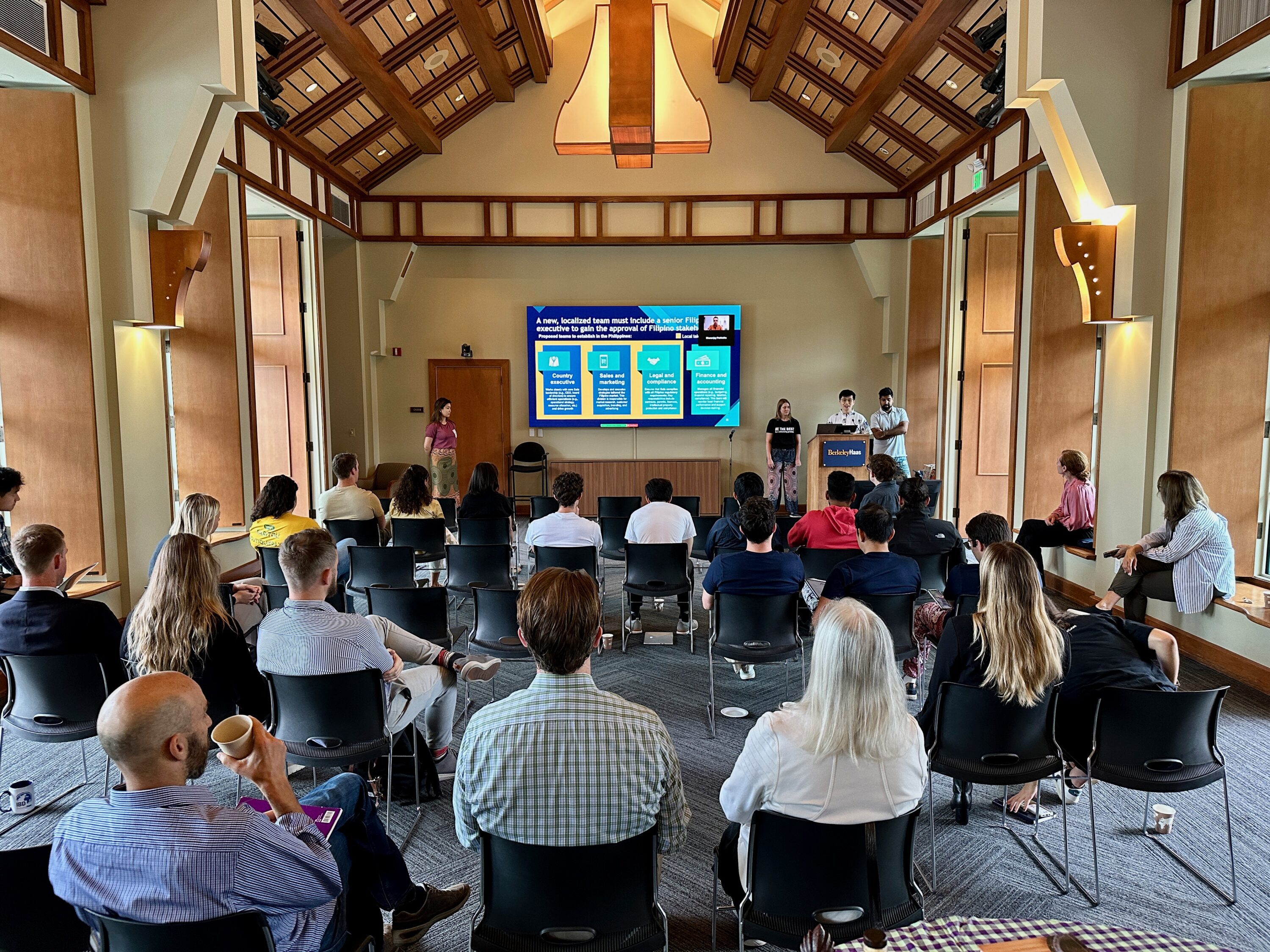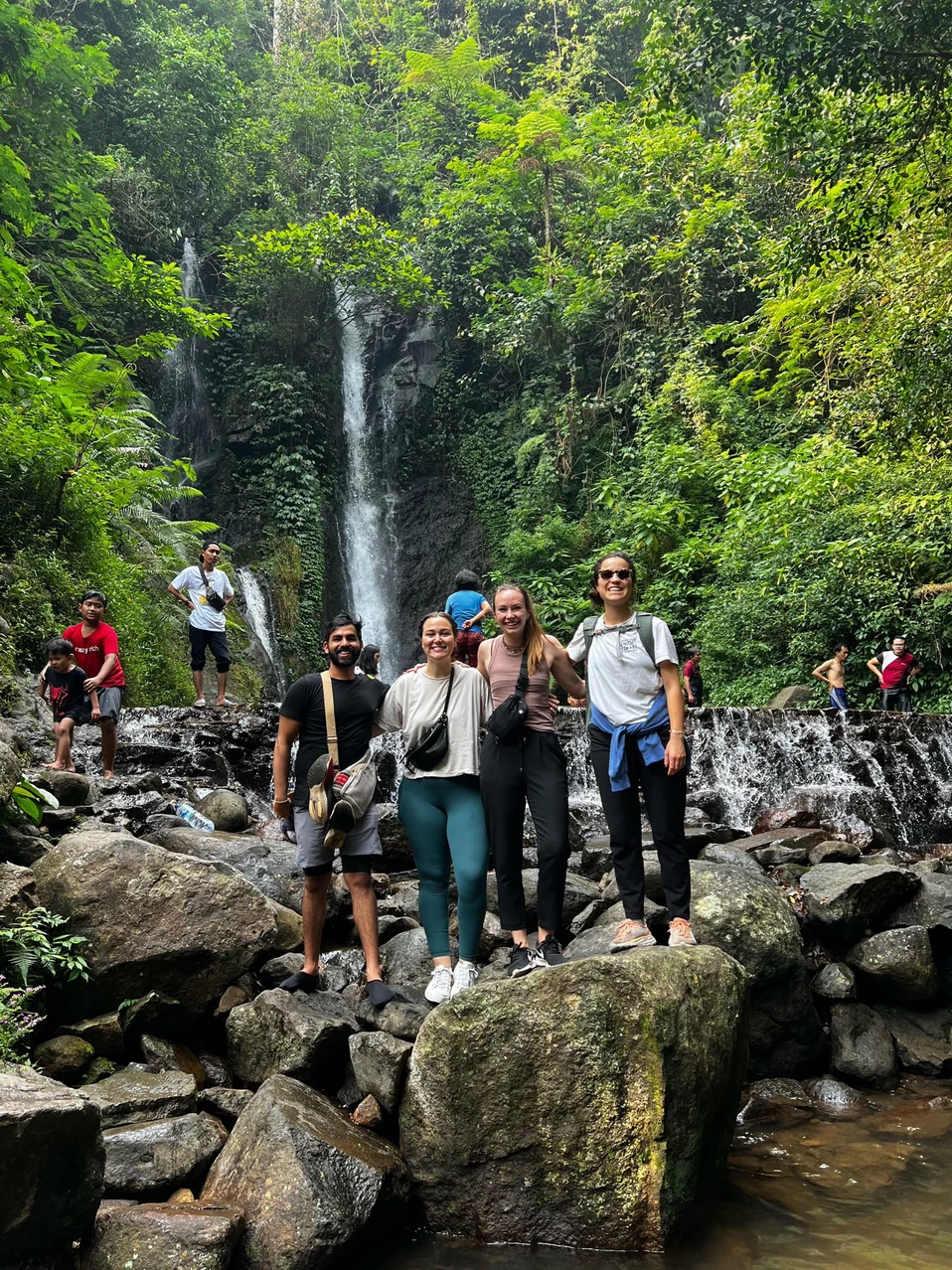Refashioning a more sustainable future for apparel in India
Lauren Grimanis, Nish Samant, Felix Schadeck, Mark Sheiness, Molly Zeins
From our first steps off the plane in Bengaluru (Bangalore, for those outside of India), it was clear that fashion and color played an important role in Indian society: both in terms of individual self-expression as well as a market and income for a large swath of the population. Women in vibrant, traditional sarees ambled next others in more muted, contemporary getups while street bazaars of bargained handmade goods coexisted side-by-side with fixed price retail locations offering the latest mass-produced styles. We were here to help our client change this universe for the better and the sheer scope of our undertaking was finally sinking in.

Our client, Aditya Birla Fashion & Retail Ltd. (“ABFRL”) is a subsidiary of the gigantic conglomerate Aditya Birla Group (“ABG”) and one of India’s largest pure-play fashion companies. ABFRL had undertaken an ambitious sustainability campaign “Re-Earth: For Our Tomorrow” that kicked off a few years ago and was on-track to meet or exceed many of its goals by 2020. We were enlisted to help refocus the plan with a 2025 horizon and for the past 5 months had scoured the internet investigating the sustainability plans of apparel peers around the world before interviewing experts for their insights. Now it was time to roll up our sleeves in-country and explore the unique fashion landscape within India before landing on a set of recommendations for ABFRL to implement.
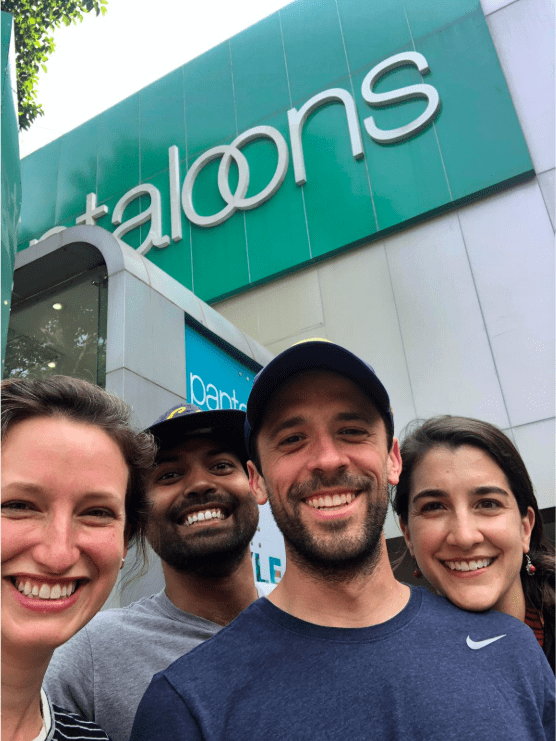
ABFRL put us up in a top-notch hotel near their office complex by the old airport that had been converted to an Indian Air Force training base. This was where they situated all of their external consultants and it was readily apparent from our first day in the office that despite our student status, the expectations set for us would be as lofty as any third-party agency brought in for a specific endeavor. Our task was ambitious and the demands high but there was an exhilarating drive at the chance to make a real impact given our client’s reach. As one interviewed employee aptly put: “removing even a single button from a garment could be a drastic improvement given our size.” This was the type of project many of us had left jobs to come to Berkeley to explore: to roadmap a way for business and society to harmoniously develop together into the future.
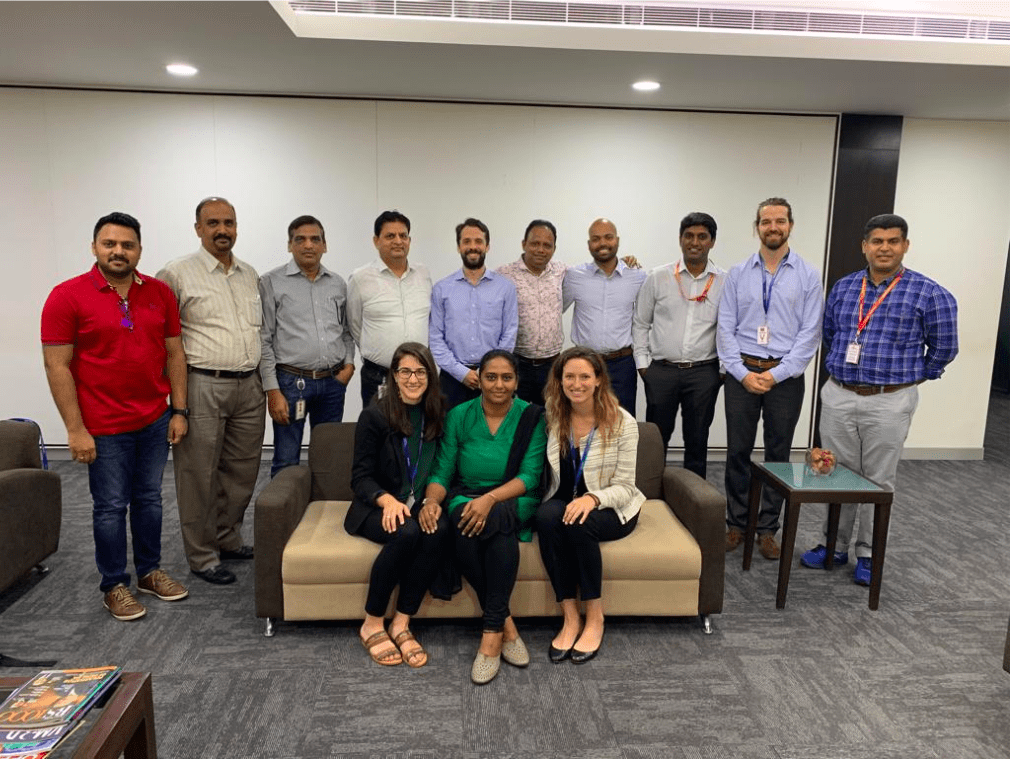
Our first week kicked off with a early presentation to ABFRL’s “ManCom” (management committee) where we set out our desk research findings and structured our goals for the subsequent 3 weeks. Attendees included the Managing Director of the organization as well as brand heads and various CXOs of the Fashion & Retail subsidiary. Given the number of high-powered and the shrewd yet relentless line of questioning we faced, it was very apparent to us that sustainability was not simply lip service within ABFRL but that we also had our work cut out for us if we were going to make the business case for adopting our recommendations.
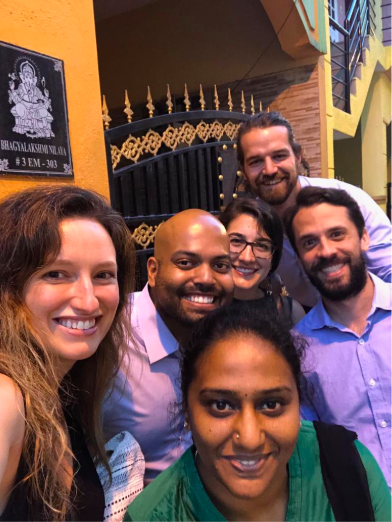
Early on Day One we met the most important person within ABFRL: Bhagya Lakshmi, a long-time member of the sustainability team and our liaison within the organization. Bhagya possessed an almost superhuman ability to get things done within ABFRL and quickly became one of our biggest champions in securing interviews and site visits over the duration of our trip. In all over the 3 weeks, we chatted with more than 3 dozen ABFRL employees and a handful of strategic partners. We visited 3 factories (which sported some of the best food the entire trip), a warehouse, a “model village”, and a half-dozen retail locations all in the name of better understanding our client’s operations and how they accomplish the herculean task of supplying garments to every corner of India.
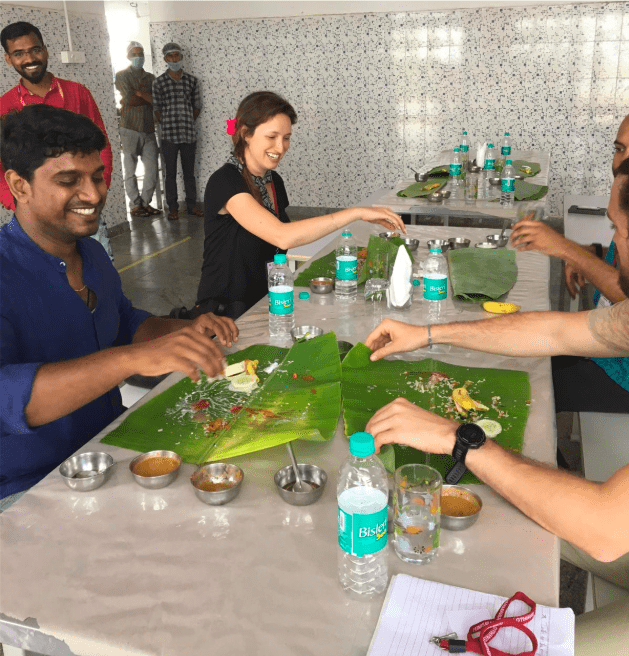
ABFRL’s is setup with at least 5 in-house brand umbrellas where they design, produce, and sell apparel items as well as a number of additional third-party brands where they are the exclusive retailer within the Indian market. An early takeaway from our peer research was to “Start where you have the most control” when it comes to sustainability so much of our time was spent focusing on the full-featured brands where they had the most power to implement our recommendations. India’s climate and generally hot weather year-round leads to only certain materials being viable and, indeed, over 70% of ABFRL’s lineup was from cotton so that became a big focus of our investigation and interviews.
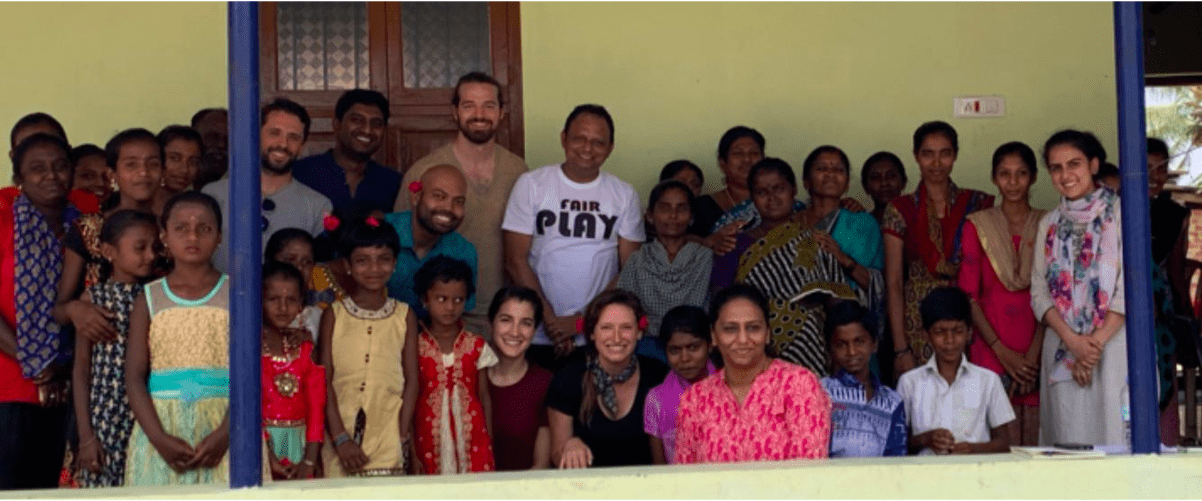
Our final presentation constituted 10 recommendations they could implement between now and 2025 that encompassed the company’s own operations as well as upstream (vendors, materials) and downstream (retailers, customers). Any one of our recommendations could be an entire IBD project in its own right and given the large scope of our project, we struggled with the timeless challenge of depth vs. breadth. Nonetheless, the feedback was that our presentation was well-received with ABFRL commenting that 80% of our suggestions would be piloted by 2025. Because we knew the audience was limited for our concluding presentation, we designed our final deliverable to also function as a shareable roadmap to stand on its own without us. We had a fantastic time in India and have high hopes for ABFRL and its stakeholders going forward. The project gave us unprecedented insight into the Asian apparel industry and a lens into manufacturing we rarely see Stateside. IBD will certainly be one of the highlights we each take away from the Haas experience and a bond the 5 of us will always share.
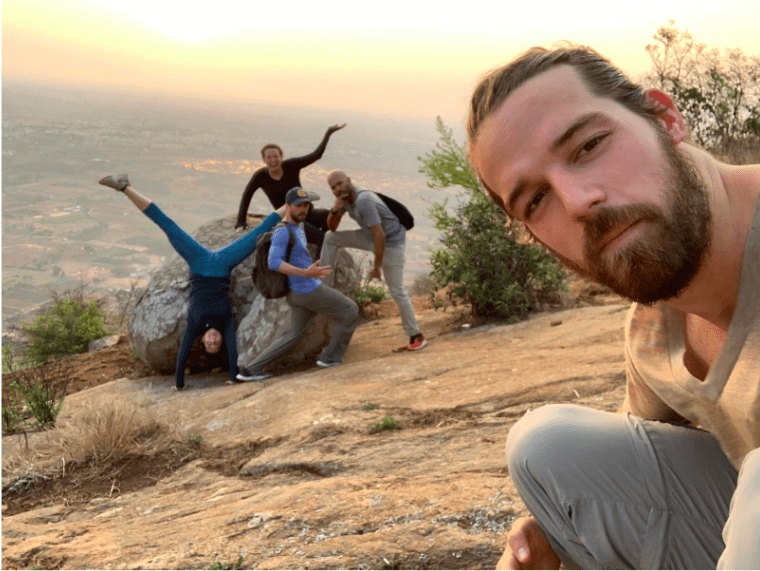
While the demands of the project kept us mostly local to the hotel premises and the 3 restaurants/bars it sported, we did manage to escape to surrounding areas over the weekend. During our first weekend in the city, still fighting off the jetlag, we opted for a night hike in the majestic Naandi Hills and even the bus breakdown, 3-hour delay, and deceptively steep climb couldn’t keep us from enjoying the great sights this former hillside sanctuary fortress offered. Our taste for the Indian outdoors were whet and for the next weekend we opted for a more immersive experience exploring the Kabini region in a jungle resort near the Nagarahole tiger reserve. We saw plenty of flora and fauna during our two morning safaris by boat and vehicle but sadly the majestic big cats eluded us until we can next come back. The great preservation efforts by the Nagarahole rangers combined with our ABFRL work towards sustainability gave us real hope that the landscape and mindset within India is changing to a more eco- and socially-conscious future that would allow many generations to come to explore its rich geography and benefit from varied and historic produced goods.

